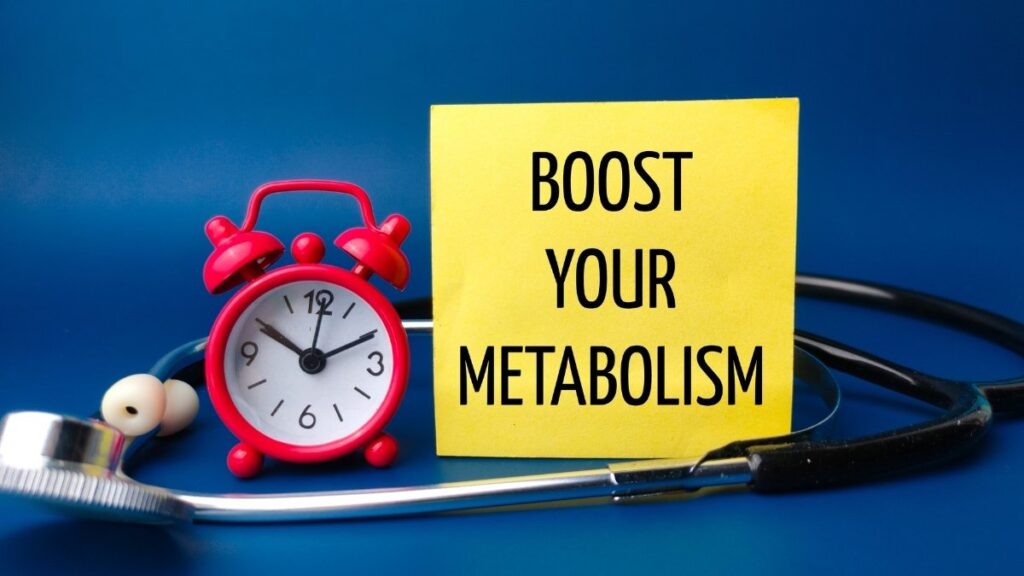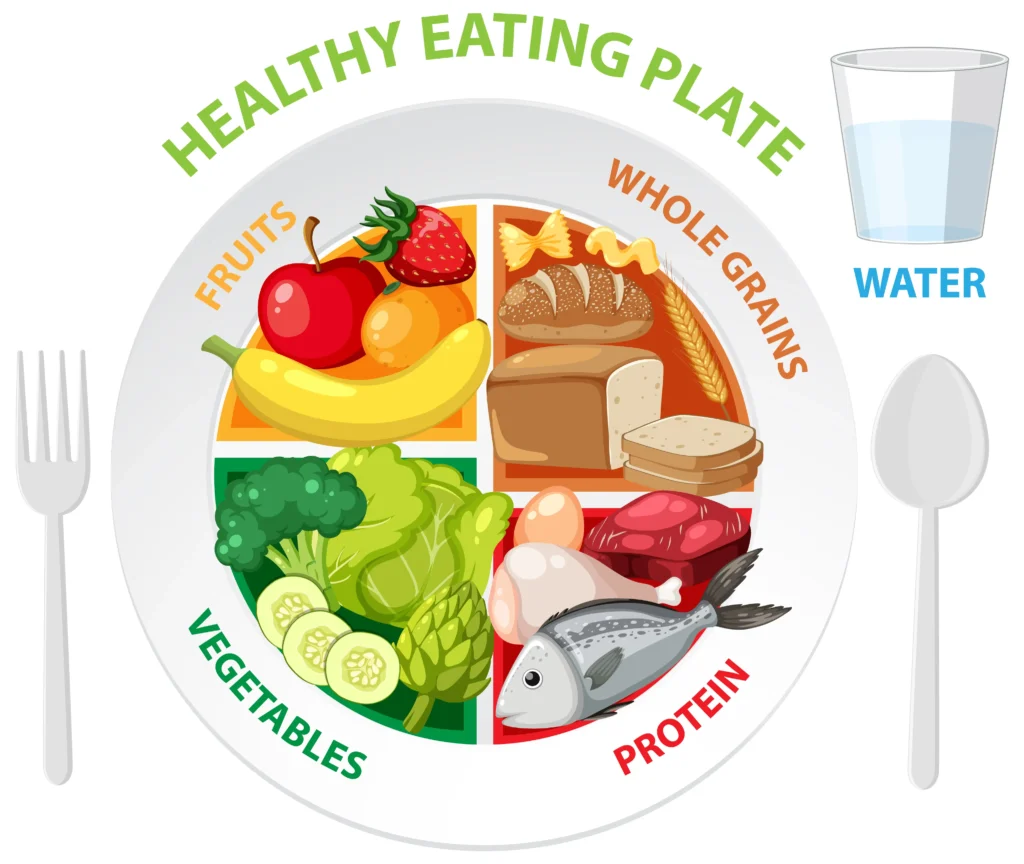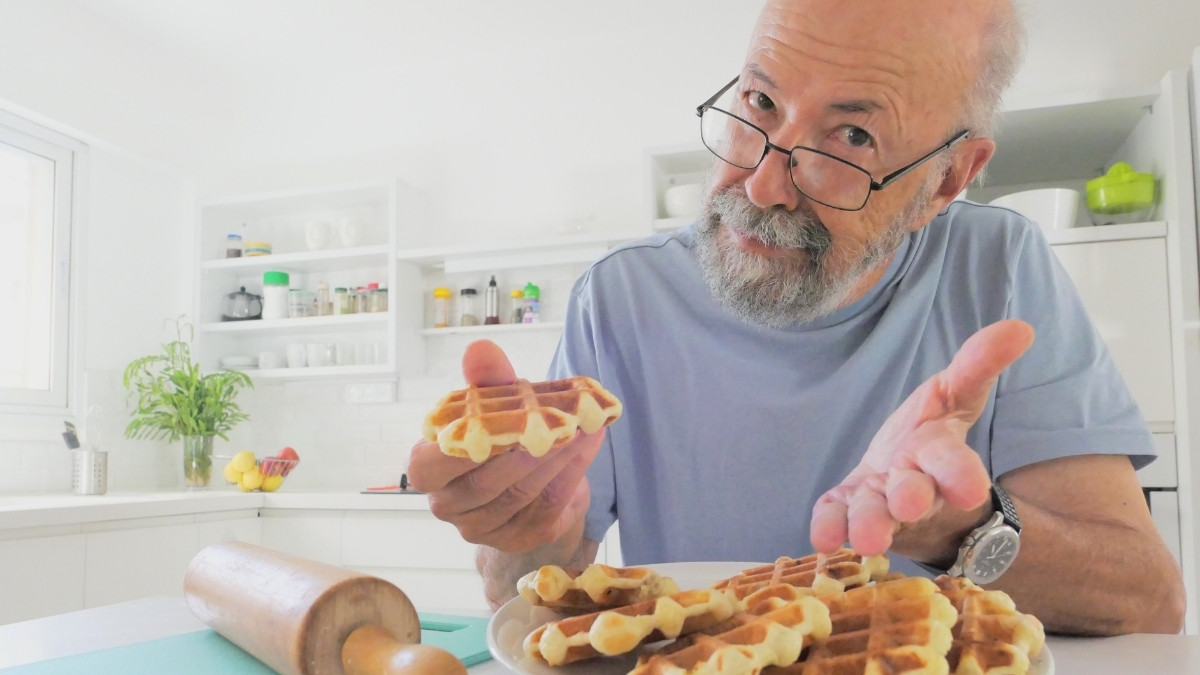Why Skipping Breakfast Gets More Dangerous After 60—Metabolism Experts Explain
Recent 2025 research tracking nearly 3,000 older adults revealed a sobering truth: skipping breakfast or eating it later increases mortality risk and accelerates cognitive decline.
Yet over 35% of adults now skip breakfast regularly, a trend climbing among younger demographics who may carry this habit into their senior years. Here’s the critical issue—after 60, metabolic changes make skipping breakfast increasingly dangerous.
Your body no longer processes food the way it did in your youth, and many older adults don’t realize this fundamental shift. In this guide, you’ll discover why metabolism changes dramatically after 60, six specific health risks of breakfast skipping in seniors, evidence-based strategies to overcome morning appetite loss, and practical breakfast solutions tailored for older adults.
Warning Lights
The 6 Critical Dangers of Skipping Breakfast After 60
Breakfast skippers have an 87% higher risk of death from cardiovascular disease.
— 2025 Meta-AnalysisHeart Disease & Mortality
Skipping breakfast is linked to a 27% higher chance of coronary heart disease and a 32% higher risk of all-cause mortality as your body enters a state of stress, raising blood pressure and inflammation.
Accelerated Brain Aging
Studies show skipping breakfast leads to significantly faster cognitive decline and signs of neurodegeneration in just 36 months by starving the brain of its primary fuel: glucose.
Blood Sugar Dysregulation
Prolonged morning fasting after 60 leads to dangerous glucose spikes later in the day, drastically lowering insulin sensitivity and paving the way for Type 2 Diabetes.
Circadian Rhythm Disruption
Your body’s 24-hour internal clock relies on a morning meal to synchronize hormones and metabolism. Eating your first meal after 9 AM significantly increases cardiovascular risk.
Hormonal Chaos
Skipping breakfast elevates the stress hormone Cortisol (promotes belly fat) and disrupts Leptin and Ghrelin, the hormones that control your appetite, leading to overeating and malnutrition.
Nutritional Deficiency & Muscle Loss
Breakfast is a critical window for protein intake to fight age-related muscle loss (sarcopenia). Skipping it creates a nutritional deficit that weakens the body in a downward spiral.
Why Skipping Breakfast After 60 Is Dangerous: What Science Says
Scientists tracked nearly 3,000 older adults in 2025. What they found was alarming. People who skipped breakfast or ate it late faced higher death rates. Their brains aged faster too.

Here’s what makes this scary. Over 35% of adults now skip breakfast regularly. The numbers keep climbing. And after 60, this habit can be deadly.
Your body at 65 doesn’t work like it did at 35. Most people don’t realize this. They keep the same eating habits from their younger years. Big mistake.
This guide shows you why breakfast matters more after 60. You’ll learn about six specific health risks. We’ll cover why you lose your morning appetite. And you’ll get practical solutions that actually work.
How Your Metabolism Transforms After 60
Let’s be honest about what happens. Your body changes after 60. These aren’t small changes. They’re big ones that affect how you process food every single day.

Nearly one-third of U.S. adults over 60 have diabetes. About half don’t even know it. Another third have prediabetes. That’s a lot of people with blood sugar problems.
Your pancreas doesn’t respond to food the way it used to. Even when researchers control for insulin sensitivity, older adults show defects in insulin secretion. The cells that make insulin become less sensitive to the hormones that should trigger them. This gets worse as you age.
Think about glucose tolerance. That’s your body’s ability to handle sugar. Between ages 60 and 92, this ability drops significantly. It happens even if you’re fit and not overweight.
Here’s what’s happening inside your muscles. Your mitochondria (the power plants of your cells) start to malfunction. Fat builds up inside muscle cells. Inflammation increases. Your body produces more oxidative stress. And autophagy (your cells’ cleanup system) slows down. All of this makes your body resistant to insulin.
But the biggest problem? Obesity. Especially when fat accumulates in places it shouldn’t be. When fat builds up outside your natural storage areas, your insulin sensitivity drops fast.
About 40% of Americans over 60 now have either type 2 diabetes or impaired glucose tolerance. Your body also clears insulin more slowly than before. This means insulin stays in your bloodstream longer.
Six Critical Health Risks When Seniors Skip Breakfast
1. Cardiovascular Disease and Mortality
This is the big one. The research is clear and scary.
People who never ate breakfast had an 87% higher risk of dying from heart disease. They also faced 19% higher risk of death from any cause compared to daily breakfast eaters.

A major study of male health professionals found something similar. Men who skipped breakfast had a 27% higher chance of developing coronary heart disease.
Another review looked at multiple studies. People who regularly skipped breakfast were 21% more likely to have a cardiovascular event or die from it. They were 32% more likely to die from any cause.
Why does this happen? Your heart needs consistent fuel. When you skip breakfast, your body goes into stress mode. Blood pressure rises. Inflammation increases. Your arteries take a beating.
A 2024 study from Spain found the sweet spot. Breakfast should provide 20-30% of your daily calories. People who ate this amount showed better cardiovascular health markers. Their waist measurements were healthier. Their BMI was better.
2. Accelerated Cognitive Decline
Your brain suffers when you skip breakfast. And the decline happens fast.
A 2025 study followed 859 adults aged 60 and older. They tracked them for 36 months. The breakfast skippers showed significantly faster cognitive decline. Their brain scans revealed signs of neurodegeneration.

Breakfast skipping messes up your brain’s energy balance. Your brain needs glucose to function. When you skip breakfast, you’re forcing your brain to run on empty after already fasting overnight.
The connection to dementia risk is real. It happens through multiple pathways. Poor blood sugar control damages brain cells. Inflammation accelerates brain aging. Nutritional deficits prevent repair.
Think about it. You wouldn’t drive your car on empty and expect it to perform well. Why treat your brain that way?
3. Blood Sugar Dysregulation
This risk connects to everything else. Your blood sugar control falls apart when you skip breakfast.

Breakfast skipping leads directly to type 2 diabetes. When you skip the morning meal, your insulin sensitivity drops. The hormones that tell you you’re full decrease.
After 60, prolonged fasting creates dangerous glucose spikes later in the day. Your body can’t handle these spikes as well as it used to. A study of healthy women found that skipping breakfast increased total daily food intake. It also decreased post-meal insulin sensitivity.
Here’s the problem. You skip breakfast thinking you’re saving calories. But you end up eating more later. And your body processes that food worse than if you’d eaten breakfast.
4. Disrupted Circadian Rhythm
Your body runs on a 24-hour clock. This clock controls more than you realize.
Research shows that eating your first meal after 9 AM increases cardiovascular risk. Having your last meal after 9 PM makes it worse. Women face especially high risks from these patterns.

Regular breakfast helps synchronize your hormones and metabolism. This is called chrono-nutrition. When you eat matters as much as what you eat.
The disruption affects your sleep quality. It throws off your hormone regulation. Your cortisol (stress hormone) stays elevated. Your melatonin (sleep hormone) gets confused.
Everything in your body expects breakfast at a certain time. Skip it, and you’re fighting against your biology.
5. Hormonal Imbalance
This one surprises most people. Your hormones change as you age, and breakfast skipping makes it worse.
In healthy elderly people, fasting leptin levels were much higher (4.3 vs 1.3 ng/mL). Leptin is the hormone that tells you you’re full. When it’s too high all the time, you lose your appetite. This leads to malnutrition.

Older adults have higher levels of appetite-suppressing hormones. These include cholecystokinin, insulin, and leptin. This means less hunger and less food intake overall.
Your ghrelin (hunger hormone) gets disrupted too. So does cortisol. When you skip breakfast, these hormones send confused signals. Your body doesn’t know when to be hungry or full.
6. Nutritional Deficiency Risk
Among older adults, breakfast is the most skipped meal. About 55% skip it regularly. The main reasons? Loss of appetite (41.4%) and lack of time (24.1%).
When you skip breakfast, you miss out on essential nutrients. Most people don’t make up for these nutrients later in the day.

The protein deficit is especially concerning. After 60, you need protein to maintain muscle mass. Morning protein intake is critical. If you skip breakfast, you’re likely not getting enough protein total.
This creates a downward spiral. Less protein means more muscle loss. More muscle loss means slower metabolism. Slower metabolism means worse blood sugar control. And the cycle continues.
The Science Behind Why Breakfast Matters More at 60+
Let’s get into the why. Understanding the science helps you take this seriously.

A 2025 review analyzed 66 studies. Breakfast skipping negatively affects your gut bacteria. It contributes to inflammation throughout your body. It causes metabolic dysfunction.
Your metabolic window narrows as you age. This means your body has less flexibility in how it processes food. Morning is when your insulin sensitivity is naturally highest. Skip breakfast, and you waste your best metabolic window.
Muscle preservation becomes critical after 60. Sarcopenia (age-related muscle loss) accelerates. Morning protein intake is crucial for maintaining lean mass. Breakfast timing directly affects how well your body builds and maintains muscle.
Your aging brain needs a consistent glucose supply. Overnight fasting already depletes your glycogen stores. These are your backup energy reserves. A morning meal prevents cognitive brownouts. You know that foggy feeling? That’s your brain struggling without fuel.
The inflammatory response is the final piece. A 2025 study found that breakfast omission links to systemic inflammation. It alters gut bacteria. It accelerates cognitive decline.
Warning Signs You’re at Higher Risk
Not everyone faces the same risk. Some people need to be extra careful about skipping breakfast.

Metabolic Red Flags:
- You’ve been diagnosed with prediabetes or diabetes
- Heart disease runs in your family
- You have high blood pressure or high cholesterol
- Your BMI is over 27
- Your waist measures over 35 inches (women) or 40 inches (men)
Lifestyle Indicators:
- You take medications on an empty stomach
- You feel dizzy or weak mid-morning
- You crash hard in the afternoon
- You can’t concentrate before lunch
- You’re losing weight without trying
Age-Specific Factors:
- You’re over 65 years old
- You live alone
- Your appetite has decreased recently
- Mobility issues make cooking hard
- You manage multiple chronic conditions
Check this list honestly. If you have three or more of these factors, skipping breakfast is especially risky for you.
What Makes a Healthy Breakfast After 60

Not all breakfasts are equal. Here’s what works best.
Timing Matters: Eat breakfast before 9 AM. Research shows this timing gives you the best cardiovascular outcomes. Try to eat within 1-2 hours of waking up. Keep your schedule consistent every day.
The Right Amount: Aim for 20-30% of your daily calories at breakfast. This usually means 400-600 calories for most seniors. This distribution shows the best health markers.
Macronutrient Balance:
- Protein: 20-30 grams (eggs, Greek yogurt, cottage cheese, nuts)
- Complex Carbs: Whole grains, oats, fruit
- Healthy Fats: Avocado, nuts, olive oil
- Fiber: At least 5-8 grams
What to Include: You need five components. A high-quality protein source. Colorful fruits or vegetables. A whole grain or complex carb. A source of healthy fat. And fluid (water, tea, or coffee).
What to Limit: Cut back on processed meats like bacon and sausage. Skip the sugary cereals. Avoid white bread and pastries. Don’t drink excessive juice.
Quick Examples That Work:
- Greek yogurt parfait with berries and walnuts
- Vegetable omelet with whole grain toast
- Oatmeal with almond butter and banana
- Smoked salmon with avocado on whole wheat
These aren’t complicated. You can make any of these in 10 minutes or less.
Overcoming Common Breakfast Barriers After 60
Let’s tackle the real reasons people skip breakfast. Each barrier has a solution.

Barrier 1: “I’m Not Hungry in the Morning”
This is the most common excuse. And it’s actually a real problem. Your appetite hormones change as you age.
Start small. Eat half a banana and a handful of nuts. That’s it. Try liquid options like smoothies or protein shakes if solid food feels heavy.
Build the habit gradually over 2-3 weeks. Your body needs time to adjust. Those altered leptin and ghrelin levels will eventually reset.
Barrier #2: “It Takes Too Much Time”
You’re busy. We get it.
Prep the night before. Make overnight oats. Hard-boil a batch of eggs on Sunday. Keep a list of 5-minute options on your fridge.
Batch cook on weekends. Make a big frittata. Portion it out. Grab and go all week. Or keep ready-to-eat healthy options on hand.
Barrier #3: “I’m on Intermittent Fasting”
Intermittent fasting is popular. But the 2025 Dietary Guidelines Advisory Committee found mixed evidence for breakfast skipping benefits. They have specific concerns about older adults.
Time-restricted eating may need modification after 60. Your body doesn’t handle long fasts as well. Consider a 12-hour eating window that starts with breakfast.
Talk to your healthcare provider. They can help you figure out what’s safe for your specific situation.
Barrier #4: “I Have Digestive Issues”
Digestive problems are real. They make eating hard.
Try smaller, more frequent meals. Choose easily digestible options. Avoid foods that trigger your symptoms. Pay attention to medication timing.
Sometimes acid reflux or other issues improve when you eat consistently. Skipping meals often makes digestive problems worse.
Barrier #5: “I Live Alone and Don’t Feel Like Cooking”
Living alone changes your eating habits. Cooking for one feels pointless.
Focus on simple no-cook options. Yogurt and fruit. Cheese and whole grain crackers. Pre-made hard-boiled eggs. Look into meal delivery services designed for seniors.
Check out community breakfast programs. Many senior centers offer social breakfast opportunities. Eating with others might motivate you to eat more consistently.
The 2-Week Breakfast Reset Plan for Seniors
Ready to start? This plan makes it easy.

Week 1: Foundation Building
Days 1-3: Start Small
- 7:30 AM: Drink a glass of water
- 8:00 AM: Eat a half serving breakfast (1 egg and 1 slice of toast)
- Track your energy levels in a notebook
Days 4-7: Increase Portions
- Add more protein (try to reach 15-20 grams)
- Include a fruit or vegetable
- Note any changes in your appetite
Week 2: Optimization
Days 8-10: Full Breakfast
- Eat a complete balanced meal
- Aim for 400-500 calories
- Make sure all macronutrients are present
Days 11-14: Fine-Tuning
- Adjust timing to when you feel best
- Experiment with different foods
- Lock in your routine
Track These Success Metrics:
- How’s your energy through the morning?
- Are your blood sugar levels more stable? (if you monitor them)
- Do you feel less hungry mid-morning?
- Has your overall appetite improved?
- Can you focus better in the afternoon?
Most people notice improvements by day 10. Give it the full two weeks though.
When to See Your Doctor
Some situations need professional help.
Call Your Doctor Right Away If You Have:
- Unexplained weight loss (more than 5% in 6 months)
- Persistent morning nausea
- Difficulty swallowing
- New symptoms that might be diabetes
- Chest pain or heart palpitations
Schedule an Appointment If:
- You’re worried about blood sugar
- You have questions about medication timing
- You notice symptoms of nutritional deficiency
- Your appetite has been low for a while
- You need help creating a personalized meal plan
Questions to Ask Your Doctor:
- Should I adjust when I take my medications if I start eating breakfast?
- Do I need nutritional supplements?
- What’s my ideal daily calorie target?
- Are there specific foods I should avoid?
- How often should I check my blood sugar?
Don’t try to figure everything out alone. Your doctor can help you make safe changes.
Your Next Steps
Let’s recap what matters. After 60, your metabolism changes dramatically. These changes make breakfast critical for your health.
Six major risks come with skipping breakfast. Heart disease and death. Faster brain aging. Blood sugar problems. Messed up body rhythms. Hormone imbalances. And nutritional deficits.
The statistics are sobering. Skipping breakfast increases your risk of dying from heart disease by 87%. That’s not a small number.
But here’s the good news. You can fix this. An optimal breakfast provides 20-30% of your daily calories. Balance your macronutrients. Eat before 9 AM. Simple solutions exist for every common barrier.
Start tomorrow with one small step. Even half a banana and a handful of nuts counts. Your heart will thank you. Your brain will work better. Your metabolism will stabilize.
Track how you feel for two weeks. Write it down. Adjust from there based on what works for your body.
Remember this. Skipping breakfast after 60 isn’t just about hunger. It’s not about willpower. It’s about protecting your long-term health and vitality.
The research is clear. The risks are real. But the solution is simple. Eat breakfast. Your future self will thank you.








